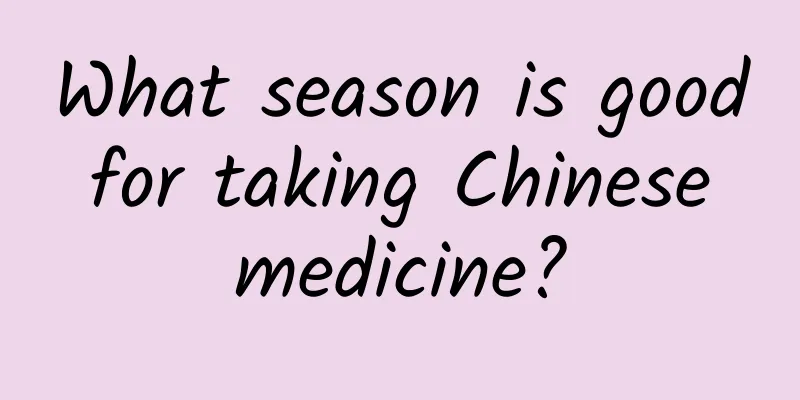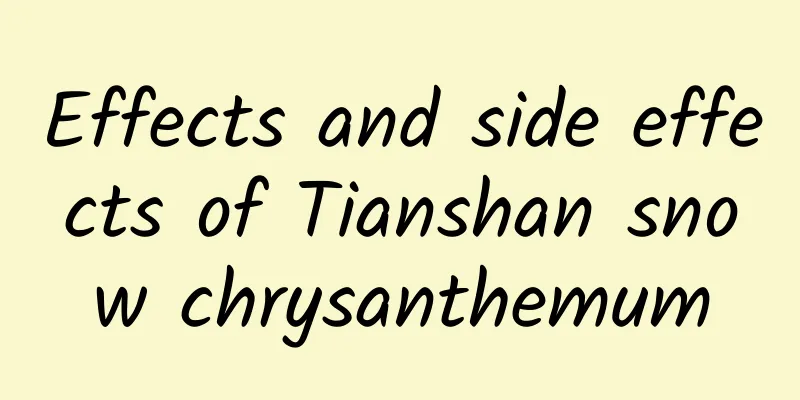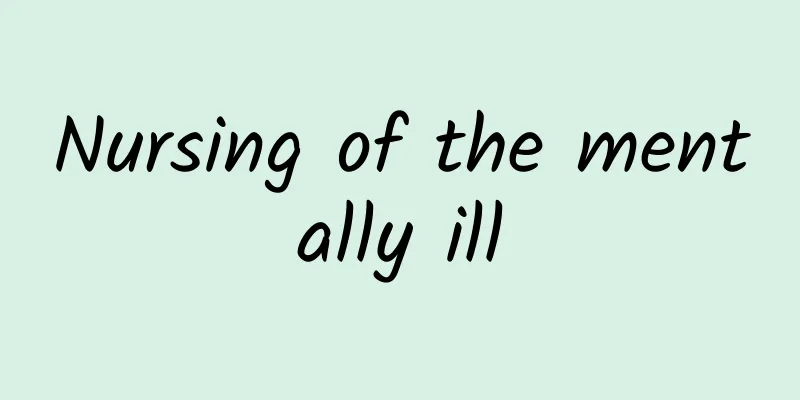What season is good for taking Chinese medicine?

|
We all know that for some chronic diseases, taking Chinese medicine is particularly effective, because it is important. Although the treatment of the disease is relatively slow, the effect is very good, and the side effects are relatively small. Many internal diseases require Chinese medicine conditioning, but the preparation of Chinese medicine is relatively slow, and the temperature is relatively high. It is particularly easy to go bad in summer. So what season is good for taking Chinese medicine conditioning? There is a saying in Traditional Chinese Medicine that "nourish yin in spring and summer, and nourish yang in autumn and winter", so the conditions suitable for conditioning are different in each season. The key to health preservation in four seasons is to follow the transformation of yin and yang. It depends on your constitution. The five internal organs of the human body are completely connected with the qi transformation of the four seasons. (Wind) Qi flows through the liver. Summer (fire) Qi flows to the heart. Long Summer (Dampness) Qi flows to the spleen. Autumn (Dryness) Qi flows to the lungs. Winter (cold) Qi flows to the kidneys. Spring is the beginning of the growth of yang and the decline of yin, so we should nourish yang. Spring is the season of growth, when all things grow. The liver qi responds internally, so the way to preserve health is to focus on nourishing the liver. Summer is the peak period of yang growth and yin decline. Summer is the season of growth, when all things flourish. The heart qi responds internally, so the way to preserve health is to focus on nourishing the heart. Autumn is the time when yin grows and yang declines, so the focus should be on nourishing yin. Autumn is a season of harvest, when all things are contracted and the lungs respond internally. Health preservation should focus on nourishing the lungs. In winter, the earth stores and all things lie dormant. The kidney Qi responds internally and is responsible for storage. Health preservation should focus on nourishing the kidney. Going against this will damage the kidney and cause impotence in the spring. The time to take Chinese medicine is very particular, generally there are the following 6 aspects: 1. Take before meals: Generally take the medicine 30 to 60 minutes before meals. If the disease is located in the lower part of the body, the medicine should be taken before meals so that the medicinal properties can be easily delivered to the lower part of the body, such as liver and kidney deficiency or diseases below the waist. For the treatment of intestinal diseases, it is also advisable to take medicine before meals, because when the stomach is empty, the liquid medicine can directly contact the gastrointestinal mucosa and pass through the stomach into the intestine more quickly, so that more of it can be absorbed and exert its effect, without being diluted by food in the stomach and affecting its efficacy. 2. Take after meals: Generally take the medicine 15 to 30 minutes after meals. If the disease is located in the upper part of the body, the medicine should be taken after meals. For treating diseases of the heart, lungs, chest, diaphragm, and stomach, taking the medicine after meals can allow the medicinal properties to move upward. Drugs that are irritating to the gastrointestinal tract can reduce damage to the gastrointestinal mucosa by taking them after meals. Drugs with higher toxicity should also be taken after meals to avoid side effects due to too rapid absorption. 3. Take between meals: that is, take the medicine between meals to avoid the influence of food on the medicine. Medicines for treating spleen and stomach diseases should be taken between meals. 4. Take on an empty stomach : Decoctions with nourishing effects should be taken on an empty stomach in the morning to facilitate full absorption. Drugs used to deworm or treat limb blood vessel diseases should also be taken on an empty stomach, so that the drugs can enter the intestines quickly and maintain a high concentration to quickly exert their effects. The same applies to decoctions with laxative effects to enhance their efficacy. 5. Take before bed : Generally take it 15 to 30 minutes before bedtime. After taking the medicines that nourish the heart and spleen, calm the mind, and induce sleep, as well as those with stagnation, chest and diaphragm diseases, etc., it is advisable to lie on your back; if you have head, mouth, or ear diseases, you should lie down without a pillow after taking the medicine; when you have symptoms on the left or right ribs, after taking the medicine, you should choose a sleeping position according to the ascending and descending effects of the medicine. If the medicine has an ascending effect, you should choose to lie on the healthy side; if the medicine has a sinking effect, you should choose to lie on the affected side. 6. Overnight take: Mainly refers to anthelmintics, which should be taken once before going to bed and again on an empty stomach the next morning in order to kill the worms and excrete them out of the body. |
<<: Effects and functions of Chinese medicine wild grape
Recommend
The efficacy and function of Penglai grass
Herba Penglaiae is a famous traditional and commo...
What kind of ginseng can be eaten to nourish the kidneys and replenish qi?
To replenish the kidney and qi is something peopl...
Chinese herbal powder made into ointment
Some people like to make some small things when t...
How to prevent volcanic eruptions scientifically?
Follow Captain Da Shanzha Wan Revealed: Why was t...
The efficacy and function of black snake
In our lives, our bodies are always troubled by s...
Want to buy a new phone in the new year? After changing it, you must pay attention to these things!
As the saying goes, after Laba, it is the New Yea...
The efficacy and function of an umbrella
Yishan is a very common Chinese medicine and also...
The wild vegetable season is here again. Poetry and ancient prose will help you appreciate the history of wild vegetable consumption
Spring is the season for all things to grow, and ...
The "rain" on these planets is not water, but gems? Or iron?
Plants and animals on Earth cannot live without r...
Constant Contact: 2020 Small Business Survey
After an unforgettable year, we are almost at the...
Is it toxic to take Polygala?
Many patients are unfamiliar with the word Polyga...
The efficacy and function of safflower
Traditional Chinese medicine has a history of tho...
What are the functions of Cistanche deserticola
We cannot fully understand all kinds of Chinese m...
The efficacy and function of ox horn cheek
Modern medical research believes that ox horn gil...
Will myopic people not have presbyopia when they get older? The truth is different from what you think
Author: Ye Junjie, Chief Physician, Peking Union ...









